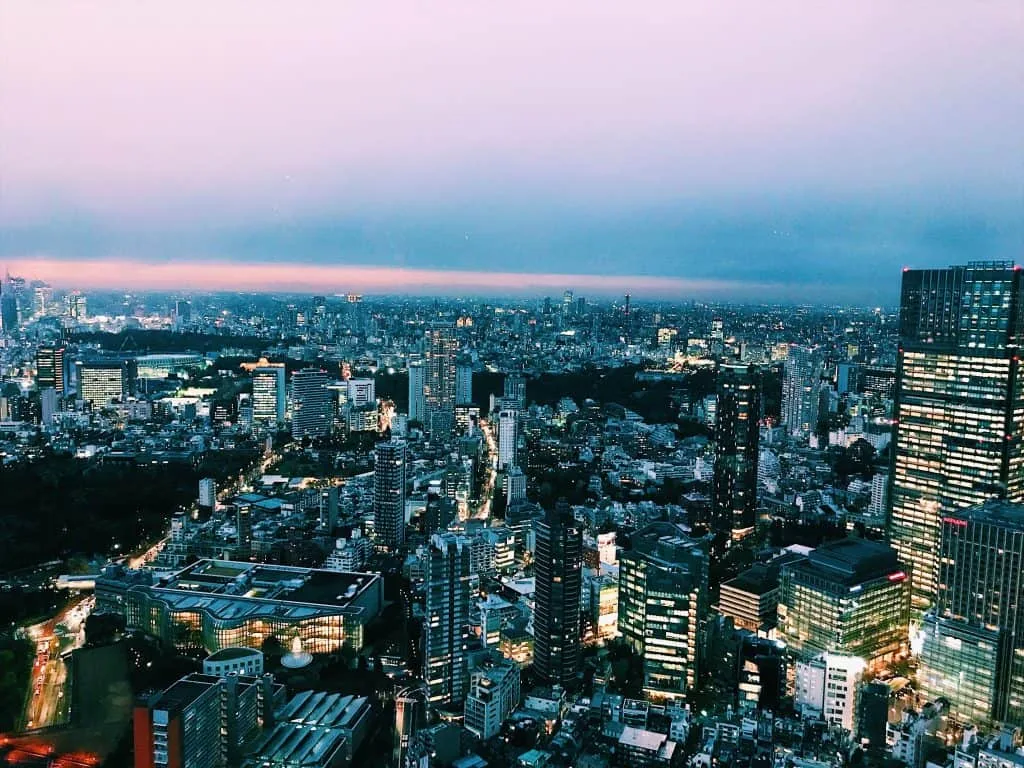If you’re travelling or relocating to Japan, you’re probably pondering, “Is Tokyo expensive?” Despite its pricey reputation, fear not! There are plenty of budget-friendly options for exploring the city. We’ll guide you through all you need to know, covering prices, expectations, and the best places to visit.
Here’s some more information about Japan travel for you: why travel to Japan, safety tips you should know, affordable ways to travel in Japan, travel tips and hacks, and the ultimate Japan packing list! If you want to travel virtually from home, check out these anime & manga, movies & TV shows, and Japanese food recipes you can cook at home!
One of the best ways to explore Tokyo is to visit the local areas and immerse yourself in the local culture. If you want to explore local areas, we have created scavenger hunt adventures personalised to your interests, filled with fun facts, clues and puzzles. If you’re curious, you can check out the games here! Check out the Flip Japan Games here! |
Feast for Less: Savvy Tips for Dining on a Budget in Tokyo

Tokyo stands proudly as one of the world’s top food capitals. With its plethora of renowned eateries, one might assume that dining out in Tokyo is exorbitantly expensive. But is Tokyo expensive when it comes to food? Surprisingly not!
From high-end establishments offering impeccable service to budget-friendly joints, Tokyo caters to all tastes and wallets. Whether you’re craving sushi, ramen, or tempura, you’ll find delectable options across various price ranges. In Japan, even the most modest eateries serve up mouthwatering dishes, making it a culinary paradise for every budget.
Fast Food
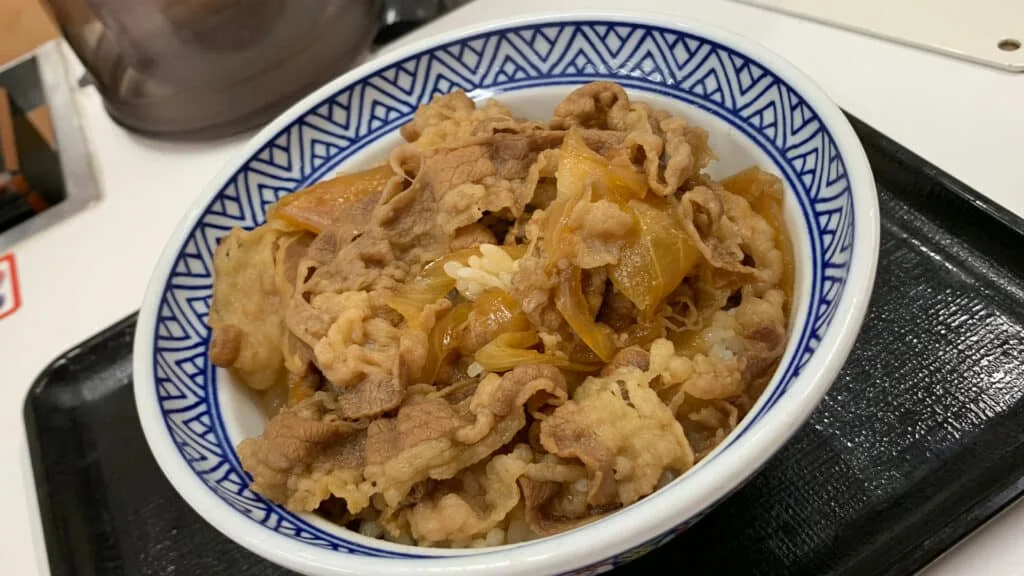
While there’s a vast array of Japanese fast food options, one of the crowd favourites is the beef bowl: succulent shredded beef and onions atop a bed of rice. A typical bowl sets you back around $3 to $4. If you’re worried about portion size at that price, fret not; many fast-food joints offer beef bowls in various sizes, with just a dollar or two extra bagging you a larger serving.
For roughly $4 to $6, you can indulge in a beef bowl set. It usually includes miso soup, a crisp green salad, and a raw egg on the side. The tradition? Beat the raw egg and use it as a dipping sauce for the tender beef – a flavour sensation! If raw egg isn’t your cup of tea, stick to the classic beef bowl.
If you fancy shaking things up, there are modern and fusion beef bowl varieties featuring cheese, kimchi, spring onions, and other toppings. These special editions won’t break the bank either, priced at around $4.50 to $7.
When it comes to the best beef bowls, look no further than the famed chain restaurants Sukiya, Matsuya and Yoshinoya.
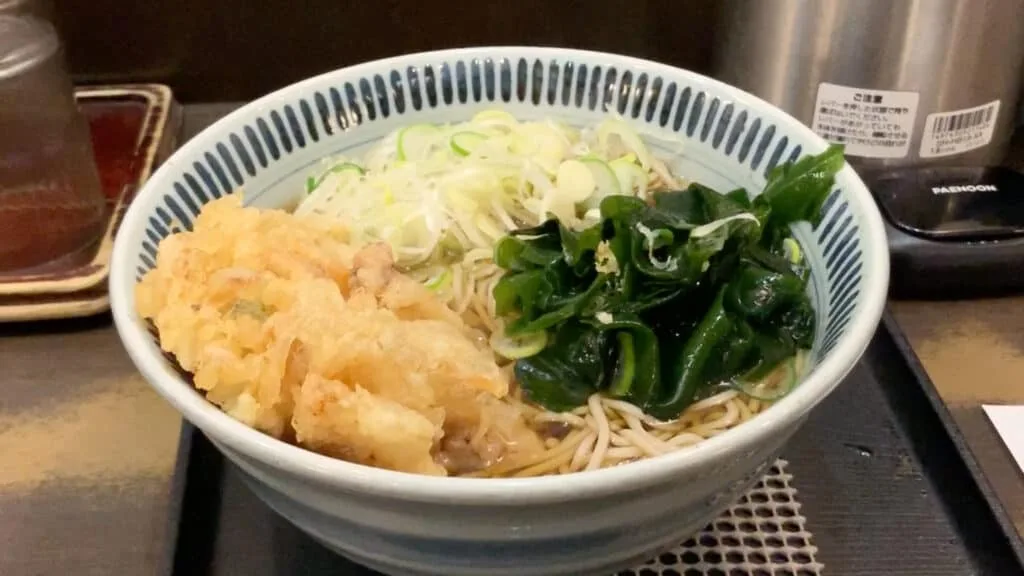
Another wallet-friendly option in Japanese fast food is soba or udon noodles. Soba, crafted from buckwheat, can be enjoyed cold or hot, while udon, made from wheat flour, boasts a thicker texture and is typically served hot. Both varieties come adorned with simple toppings like seaweed, tempura, egg, or meat. It’s a hearty and flavoursome dish that can cost as little as $3. Some soba and udon eateries even offer beef bowls on their menu, allowing you to savour both delights in one sitting without exceeding $10!
Family Restaurants

Stepping up from traditional Japanese fast-food joints are family restaurants, with Saizerya leading the pack in affordability. While they don’t offer traditional Japanese fare, their Italian and fusion dishes are a hit. One of their standout dishes is the $3 baked rice with bolognese sauce. Their menu also boasts pizzas, pastas, steaks, and Japan’s famed “hamburg” – a delectable meat patty steak.
Other notable chains include Jonathan’s, Gusto and Denny’s. While Denny’s hails from the States, its Japanese counterpart offers a unique menu. So, even if you’re from across the pond, it’s worth giving Denny’s a try. While these family restaurants may be a tad pricier than Saizerya, they make up for it with generous portions and a diverse selection of Japanese, Western, and Chinese dishes.
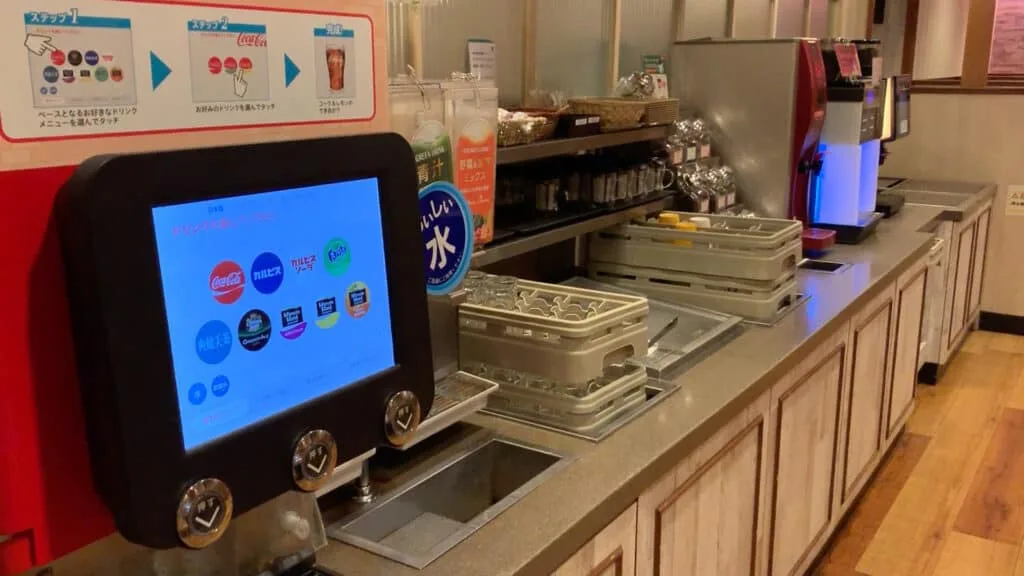
One of the best perks of family restaurants is their “drink bars” – pay around $2 and enjoy unlimited coffee, tea, juice, and soft drinks to your heart’s content.
Plus, these joints are open 24/7, catering to all your cravings, whether you’re gearing up for a day of sightseeing or winding down after a night out.
Thanks to their affordable prices, round-the-clock service, and bottomless drink bars, family restaurants are a favourite hangout spot for students looking to study and feast at the same time.
Convenience Stores
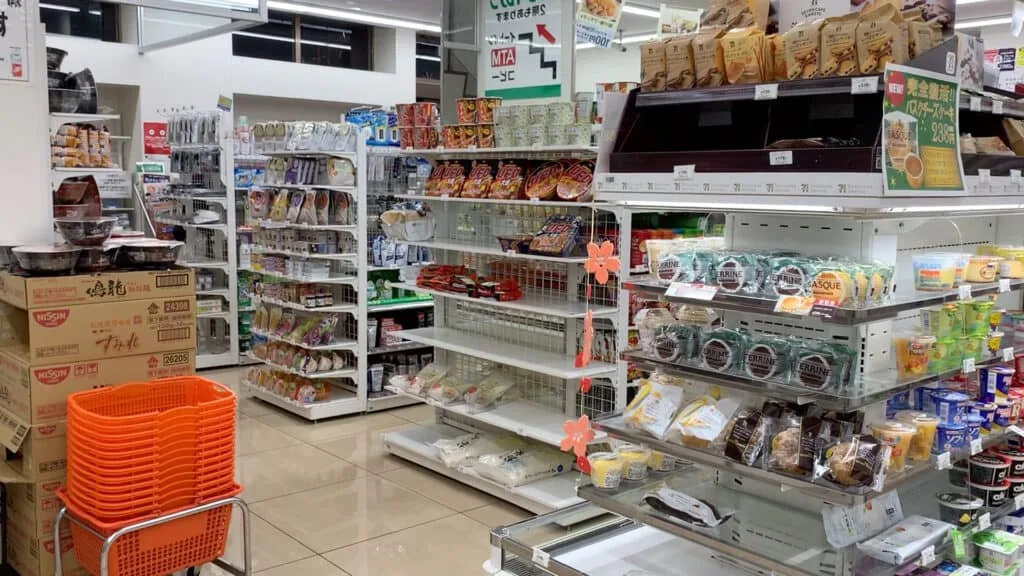
When it comes to enjoying Japanese cuisine, don’t overlook the convenience stores – staples of everyday life in Japan. The likes of 7-Eleven, Family Mart and Lawson offer a treasure trove of delights. From bento boxes – those quintessential Japanese lunchtime treats – to snacks, there’s something for every craving.
If you’re not super hungry and you just want something to nosh on, convenience stores also sell snacks like chicken skewers, corn dogs and meat buns, and they all cost less than $2.50 each.
Sure, convenience store food might not have the best reputation abroad, but in Japan, it’s a whole different story. So, if you’re feeling skeptical, pop into a convenience store and give their fare a whirl – you might just be pleasantly surprised!
Cooking

If you’re planning a stint in Japan and your digs come equipped with a kitchen, cooking up your meals can be a real money-saver. Here’s a top tip: hit up a 100 yen store like Lawson 100 (not to be confused with regular Lawson convenience stores) for groceries. Here, you’ll find veggies, meats, and fruits, each setting you back a mere $1. Some even offer veggies in bulk – think three or four onions for a dollar!
For bigger portions, swing by wholesale supermarkets, where groceries might exceed $1 but come in larger sizes.
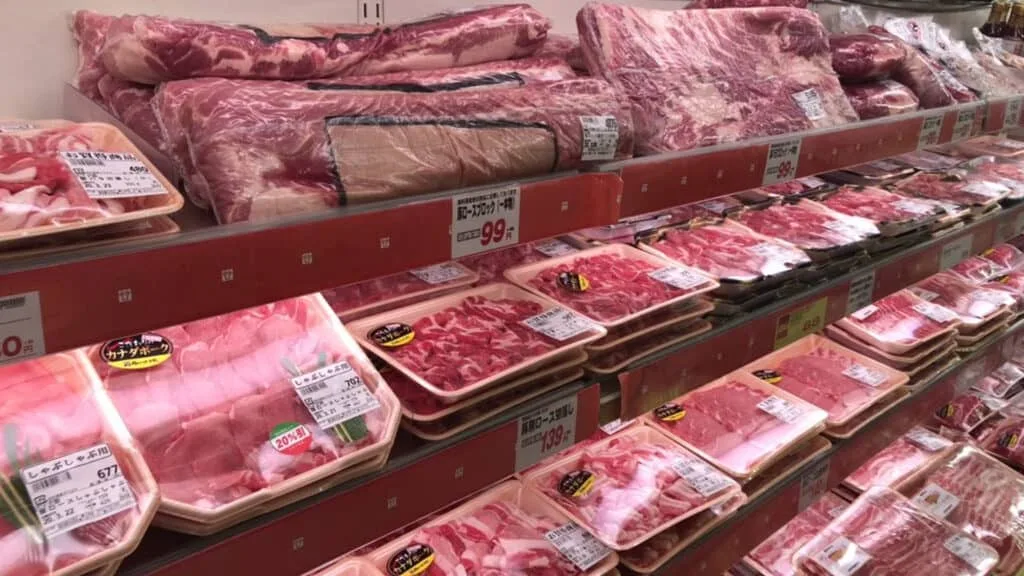
Now, onto fruits – they can be a bit pricey, with bananas or apples likely to be your best bet for a bargain. If you’re around Takeshita Street in Harajuku or Shinjuku, keep an eye out for fruit stands offering Japanese fruits on sticks – a tasty and affordable local treat.
When it comes to meat, beef and fish tend to be pricier than chicken or pork. But if you’re keen to try Japan’s famed wagyu beef without splashing out at a fancy restaurant, grab some from the supermarket and cook it up yourself – a wallet-friendly alternative that doesn’t skimp on flavour!
Clever Sips: Tips for Keeping Your Drink Budget in Check
No holiday is complete without a good drink! Forget the expensive, fancy liquors; Japan has loads of refreshing and tasty beverages that are reasonably priced, so have fun trying them out!
Bars
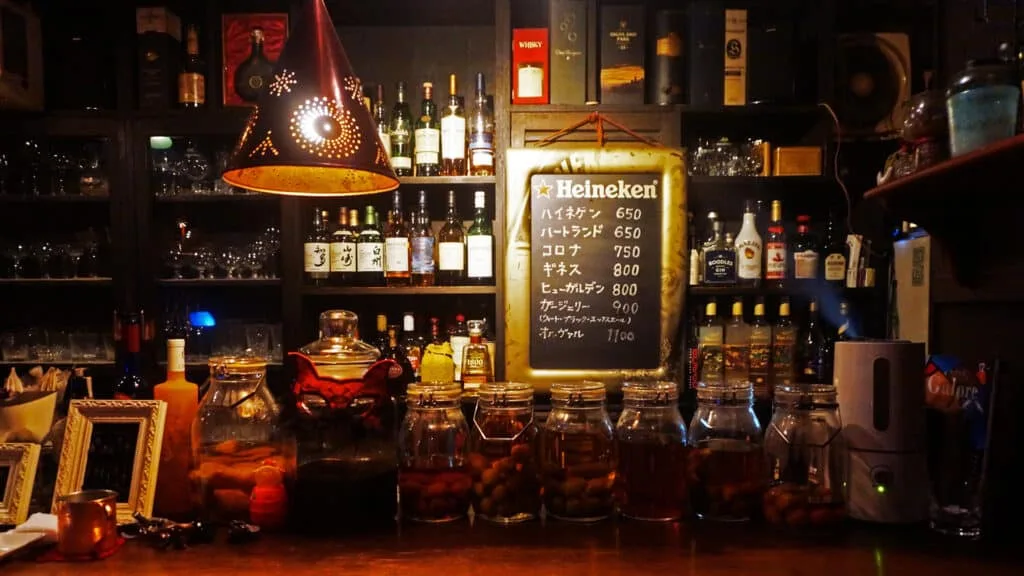
Drinking in bars in Tokyo is usually expensive. Beers are priced around $6 to $7, and cocktails can cost anywhere between $7 to $10. Some bars even have entry charges of $4 to $5. To help with that, we provide coupons and freebies in over 150 bars and restaurants all over Tokyo! To get those coupons/freebies, send us a message on Instagram.
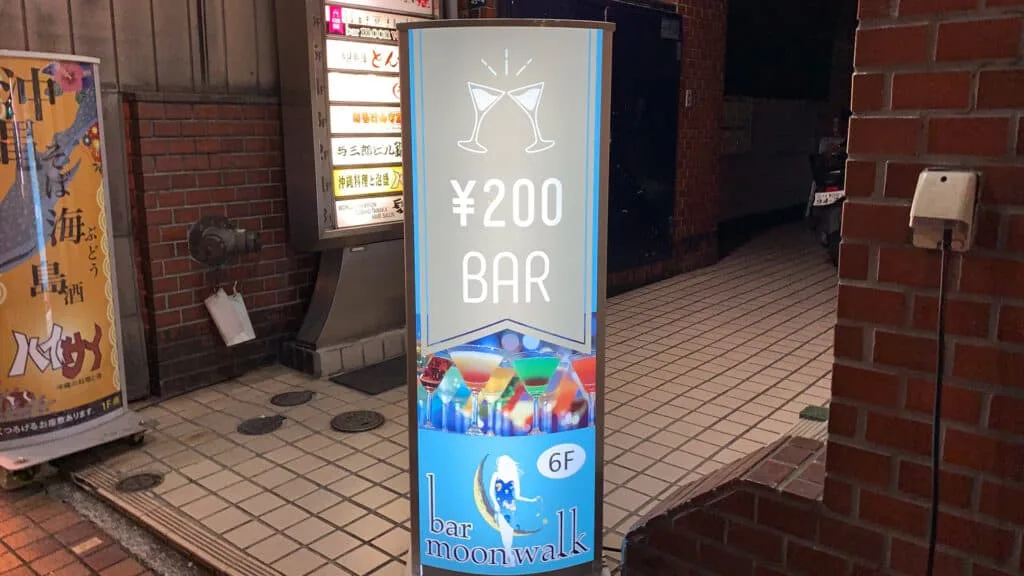
Having said all that, there are cheap bars in Tokyo. Bar Moonwalk is a bar chain where every drink is a mere $2, and you can find one or more in major areas of Tokyo like Shibuya or Shinjuku.
Ginza Bar 300, as their name implies, prices their drinks at just ¥300 (around $3) and are located in the Ginza area. The Ginza area is a business district, so expect it to be crowded with businessmen after working hours.
Champion in Shinjuku’s Golden Gai charges ¥500 (around $4.50) for each drink. A pro tip if you’re going to visit Champion is to get a ticket from the bar. A ticket costs ¥2,000, but you get five drinks on the ticket, bringing the price of each drink down from ¥500 to ¥400 (around $3.50).
Izakayas
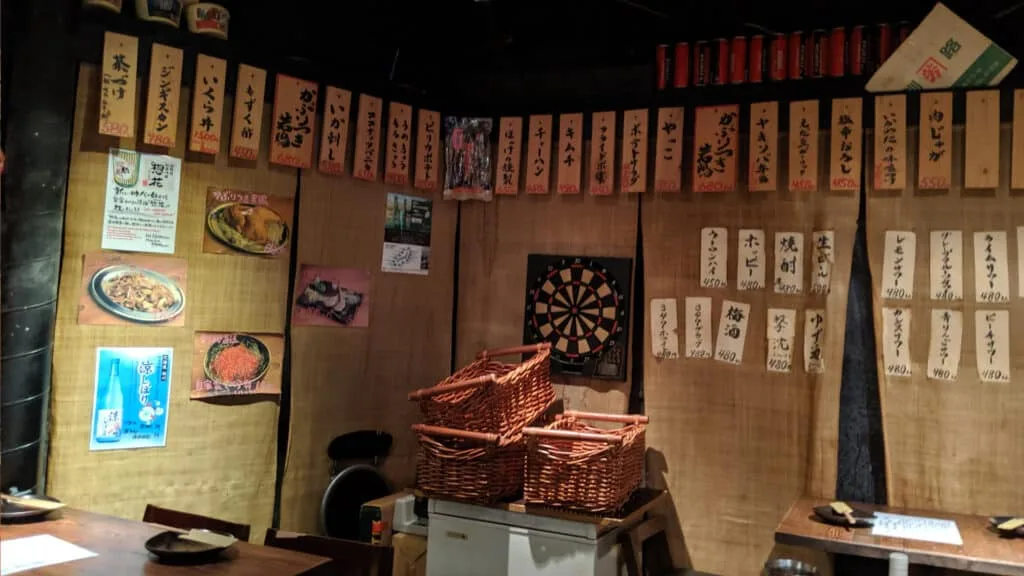
Most Japanese folks head to izakayas for drinks – these traditional Japanese bars and restaurants, akin to taverns, offer a laid-back setting to unwind. Drinks typically range from $1 to $5, with a diverse selection to tantalise your taste buds. If you’re keen to sample various Japanese tipples rather than sticking to one, izakayas are the place to be. Plus, they serve up tasty nibbles meant for sharing, perfect for curbing those hunger pangs.
What’s more, most izakayas offer all-you-can-drink deals known as ‘nomihoudai’ in Japanese. For around $15 to $20, you can enjoy two whole hours of unlimited drinks – now that’s value for money! If you’re keen to explore more about these deals in Tokyo, check out our blog and video here!
Two top-notch chain izakayas in Tokyo are Torikizoku and Yakitori Center, making them perfect picks if you’re spoilt for choice.
Keep in mind, though, that some izakayas may levy an entry charge of $3 to $4, but they’re few and far between.
Store-Bought Drinks
Since drinking on the streets is legal in Japan, the cheapest way to enjoy a tipple would be to grab drinks from convenience stores or supermarkets and sip while exploring the city, chilling in a park, or relaxing at home. Beers typically range from $1.50 to $2, with strong zeroes coming in at a similar price. You can pick up a bottle of wine for as little as $5, while canned Japanese cocktails usually cost around $3.
For something a bit more unique, check out Kaldi or Seijo Ishii. These supermarkets offer a variety of Japanese craft beers, imported brews, and IPAs, all at reasonable prices.
Navigate on a Budget: Tips for Affordable Travel in Japan
There’s plenty to explore in Tokyo, which means you’ll be on the move from one spot to another quite a bit. Luckily, getting around the city won’t burn a hole in your pocket.
Trains and Subways
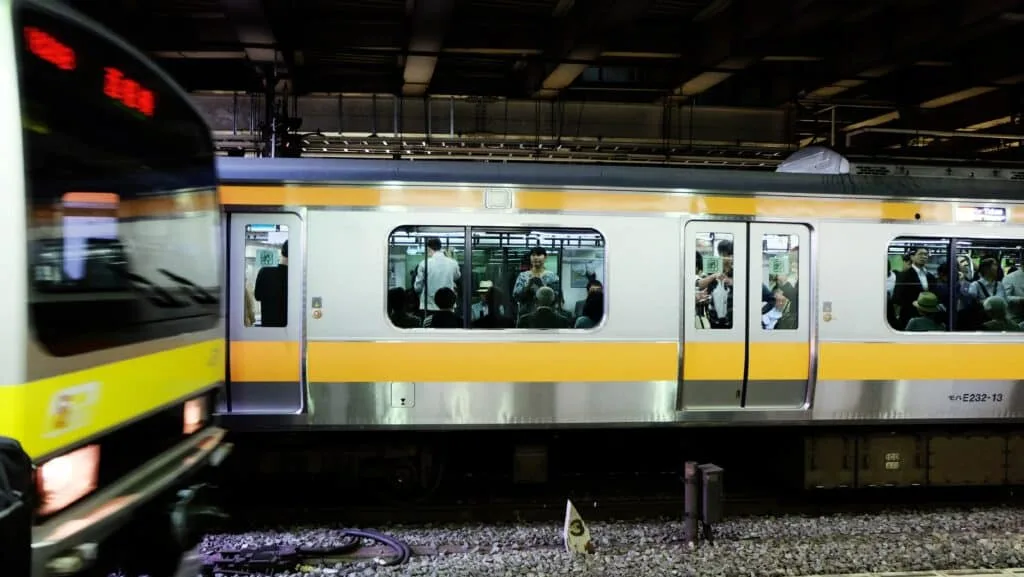
Hopping on the train is the go-to method for most people – it’s easy, efficient, and affordable. With car maintenance being a pricey affair in Tokyo’s congested streets, public transport is king. Whether it’s Japan Railway (JR) or the subways run by Toei Subway or Tokyo Metro, fares start from around $2. A short 30-minute train ride can cost just $2.50, though if you need to change lines, expect to fork out $3 or more.
Walking or Cycling
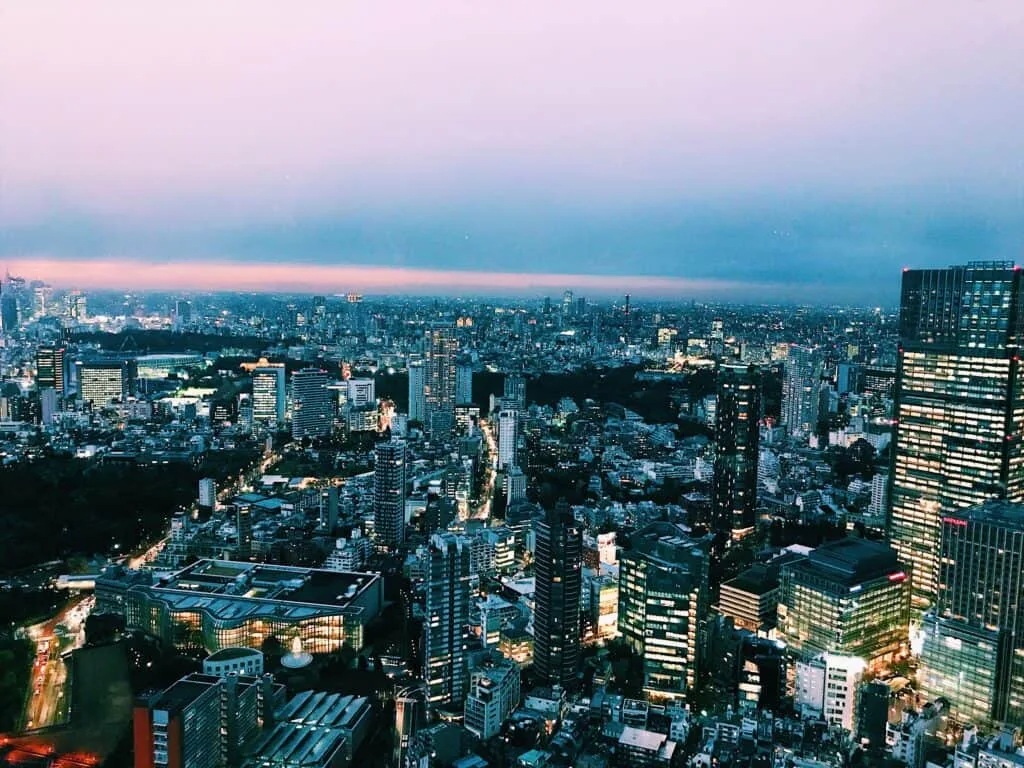
Given Tokyo’s compact nature, many attractions are just a stone’s throw away from each other. For instance, a stroll from bustling Shibuya to trendy Harajuku takes a mere 15 to 20 minutes, or just 10 minutes by bike. If you’ve got time to spare or want to save some cash, walking or cycling to your next stop is a great shout.
The beauty of getting around on foot or by bike is stumbling upon local gems you’d otherwise miss. We’ve wandered Tokyo’s streets and stumbled upon hidden shops, eateries, and bars nestled between train stations, making it worth ditching the trains for shorter jaunts.
And don’t worry about losing your way – Google Maps has got you covered!
Buses
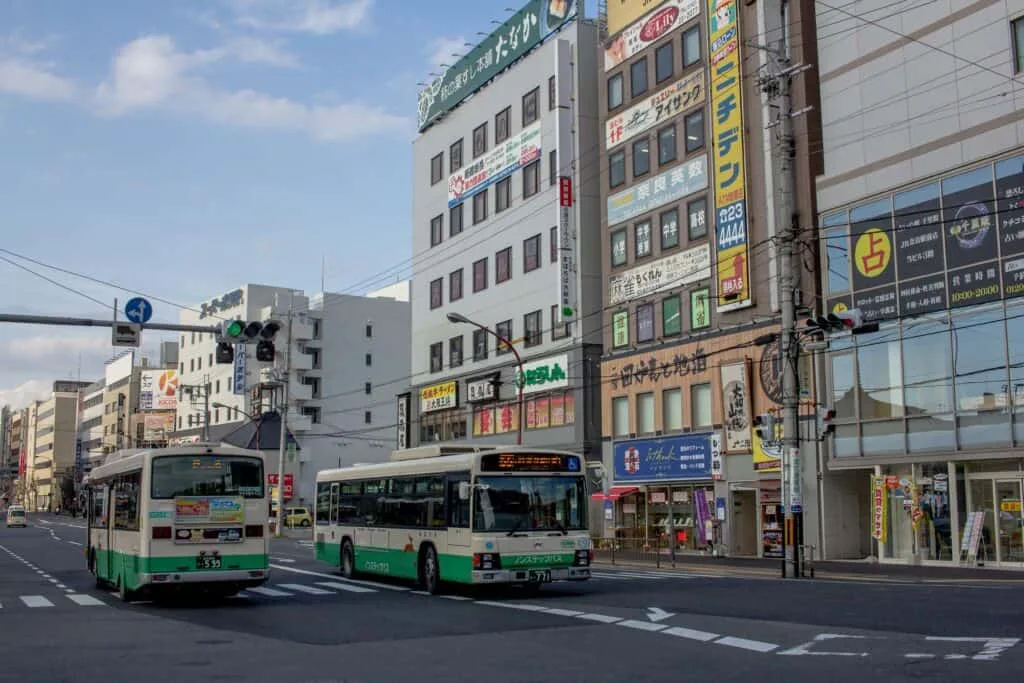
For longer journeys, consider hopping on a bus. While Japan’s bullet train, the shinkansen, is lightning-fast, it comes with a hefty price tag. A one-way trip from Tokyo to Osaka can set you back almost $150. Alternatively, opt for an overnight bus – fares can be as low as $30. Sure, the journey may take around eight hours, but if it’s an overnight ride, you’ll be catching some Zs anyway, making it a budget-friendly alternative.
And fear not about cleanliness – Japan’s renowned for its spotless public transport, and the overnight buses are no exception.
While the cheapest overnight buses might not be the epitome of comfort, splashing a bit extra can snag you a seat on newer, comfier buses. Even the most luxurious rides will only set you back around $80 to $90 – still cheaper than the bullet train.
Japan Rail Pass

Thinking of zipping between cities? Consider a Japan Rail Pass. For a one-off fee, you can hop on all JR trains (including the shinkansen) for one to three weeks. While it might seem a bit pricey upfront, if you’re planning to criss-cross Japan, it’s a wallet-friendly option compared to buying individual bullet train tickets every time you travel.
Don’t Ride Taxis!

Now, when it comes to taxis, they’re not exactly budget-friendly. A quick 10-minute ride can cost around $15 to $20, with an extra 20% tacked on between 10pm and 5am. And forget about Uber – it’s even pricier.
But wait, there’s a glimmer of hope – Didi, a car-ride service, often dishes out coupons on their app, making your journey a tad cheaper.
If you’ve missed the last train (hey, it happens – trains don’t run all night in Japan), and you’re eyeing up a taxi, think again. Instead, why not belt out a tune at a karaoke joint? You could snag two to three hours of karaoke fun for less than $20 – cheaper than a cab ride home if you live more than 15 minutes away. First trains start chugging along around 4:30am, so kick back and enjoy the tunes until then.
Sleeping Smart: Tips for Affordable Accommodation in Japan

Staying in Japan, especially in big cities like Tokyo and Osaka, isn’t as expensive as many might assume. Sure, there are luxurious options such as resorts, ryokans, and high-class hotels. But if you’re going to be out touring for most of the day anyway and returning just to sleep, you might want to consider more affordable options.
Capsule Hotels
Capsule hotels, as the name suggests, offer capsules instead of traditional rooms. These compact spaces are primarily designed for businessmen on short trips, with some being exclusively for men (though newer ones cater to both genders). For around $23 to $25 a night, you’ll get a capsule, a locker for your belongings, basic amenities, and access to facilities like baths or communal areas.

While some newer, more modern capsule hotels may cost as much or even more than regular hotels, if you’re simply looking for a private space to sleep, the cheapest capsule hotels will suffice.
Hostels

Hostels, traditionally popular among backpackers, are increasingly appealing to leisure travellers for their affordability. A hostel room in Tokyo can go for as little as $40 a night ($50 on average), including a room, amenities, and access to facilities.
One of the biggest draws of hostels is the sense of community. While both capsule hotels and hostels have communal spaces, capsule hotel guests tend to be reserved locals, whereas hostels are filled with friendly foreign tourists eager to mingle and explore the city together. Some hostels even organise events or special nights out for their guests.
Hotels

If you prefer the privacy of a regular hotel room with your own bathroom, there are plenty of options available. Smaller hotel chains, lesser-known than the likes of Marriott or Park Royal, offer rooms for around $50 to $60 a night, compared to $150 to $200 in luxury hotels. While they may not offer as many facilities, these smaller hotels are clean, comfortable, and functional.
Choose Strategic Locations for Your Stay

Lastly, consider accommodations located away from popular hotspots like Shibuya or Shinjuku. Explore neighbourhoods just a couple of stations away for more budget-friendly options. And if you’re set on staying in popular areas, look for accommodation a bit farther from the main station – a 15- or 20-minute walk away is likely to be cheaper.
Savvy Spending: Insider Tips for Frugal Shopping in Japan
If you’re in Japan, chances are you’ve been hit up by friends and family back home for souvenirs, or maybe you’re just a shopping aficionado yourself. Either way, here are some wallet-friendly ways to get your retail therapy fix!
100 Yen Shops
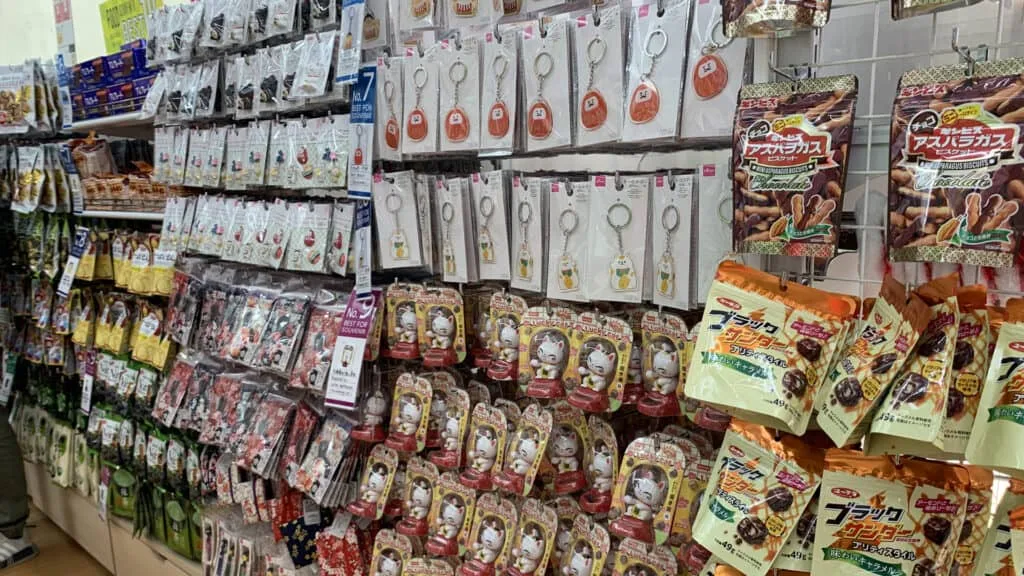
Ever heard of 100 yen shops? As the name suggests, everything in these stores costs just 100 yen (that’s about 90 cents in US dollars). You’ll find all sorts here – souvenirs, beauty bits, household essentials, you name it. You could go wild and still struggle to spend more than $30 in one go. And don’t let the price tag fool you – many of the products here are top-notch, made in Japan, known for its quality craftsmanship.
If you’re settling into life in Japan or sticking around for a while, 100 yen shops are your best mates for furnishing your new digs. Need kitchen bits, bathroom essentials, or even a few bits of furniture? You can snag ’em all for just 100 yen a pop!
Our top pick? Daiso, especially the one smack bang in the middle of Harajuku’s Takeshita Street. It’s like souvenir heaven in there.
Don Quijote

Now, let’s talk about Don Quijote – or “Donki” as the locals affectionately call it. With over 160 stores across Japan, Donki is your one-stop-shop for, well, everything. From gadgets to gizmos, beauty bargains to boozy treats, you name it, they’ve got it. Step inside and prepare to be overwhelmed (in a good way) by the sheer amount of stuff on offer – and a lot of it won’t break the bank.
Many Donki stores sprawl across multiple floors, so you could easily lose track of time exploring the endless aisles of goodies. And with no windows in sight, you might step in when it’s bright and come out to a dark sky!
Thrift Stores

In Tokyo, fashion is a big deal. But with trends changing faster than you can say “Harajuku”, many fashionistas are constantly clearing out their closets to make room for the latest looks. That’s where thrift stores come in. Head to Shimokitazawa, a cool neighbourhood just a couple of stations from Shinjuku or Shibuya, and you’ll find heaps of stores selling almost-new threads at a fraction of their original price.
Sure, some places might still be a tad pricey, but trust us – compared to buying brand new in Tokyo, this is a steal. So, even second-hand shopping here comes with a hint of luxury!
Make the Most of Japan: Budget-Friendly Tips for Visitors and Expats
These tips offer just a glimpse into the myriad ways you can make your stay in Japan more affordable, whether you’re here for a short visit or planning to settle in for the long haul. With a little savvy, you can stretch your yen further than you might think possible. And while this guide focuses on budget-conscious strategies, it’s worth noting that Japan offers plenty of opportunities for indulgence too. From lavish dining experiences to luxury shopping sprees, there’s something to suit every taste and budget.
Ultimately, whether you’re seeking to make the most of your holiday funds or navigating the challenges of living on a modest income in Japan, these insights aim to empower you to enjoy all that this fascinating country has to offer without breaking the bank.
Stay tuned for more information about Japan travel, Japanese culture, moving to Japan, living in Japan, Japanese language, and more.

